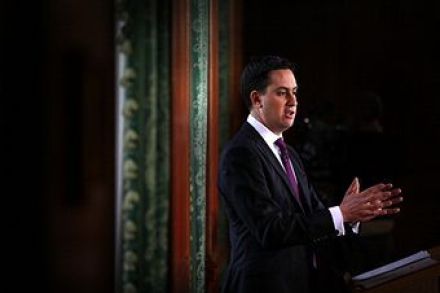The Sun shines on Miliband
When Ed Miliband won the Labour leadership, there was much speculation that he’d be ‘Kinnocked’ by The Sun. His brother David had been the favoured News International candidate and ‘Red Ed’, as The Sun dubbed him, offered a fair few targets. But the paper has been giving the Labour leader a hearing in recent weeks. Ed Miliband has been to The Sun for dinner and today’s he written for the paper, attacking Cameron for breaking his promises on crime — classic Sun territory. Partly this rapprochement is a product of the fact that Labour are ahead in the polls. No paper can take the risk of writing Miliband off as















